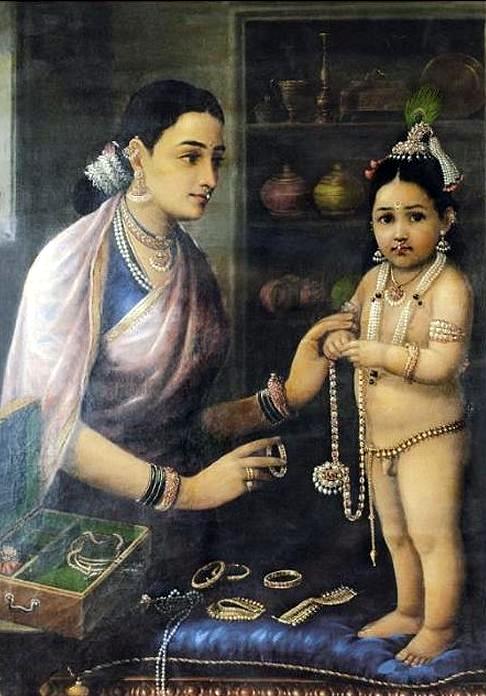I don't remember exactly when I bought this book, but
I do remember how it happened. It was in Stockholm, outside the Slussen metro
station. The seller was a typically confused Hare Krishna girl. I didn't have
the sum of money she asked for, but got the book anyway for a smaller amount.
I assumed it was the Bhagavad-Gita (the only Hindu scripture widely known in the West), but it turned out to be something more unusual: the first volume of Shrimad Bhagavatam with commentaries by Bhaktivedanta Swami Prabhupada, the founder and spiritual leader of ISKCON (the Hare Krishna movement). It was my first introduction to the strange cosmology and cosmogony of the Hare Krishnas, and to orthodox theistic Hinduism in general. I really read most of it, head spinning. And no, I never converted to the Dharma (or is it the Bhakti?), but then, the worldview expounded upon by Prabhupada is very hard to believe!
Shrimad Bhagavatam, better known in scholarly circles as the Bhagavata Purana, is a twelve-volume work perhaps composed during the period we would call the Early Middle Ages. It centers on Krishna, traditionally regarded as an avatara (earthly incarnation) of Vishnu. The work reveals that Krishna himself is the highest personality of the Godhead. For this reason, it functions as a holy scripture for Hindu traditions who worship Krishna in particular.
I can't say I remember the exact contents of the work (I haven't read it for perhaps 25 years), but some things have stayed in my mind (and sometimes on my mind). In his commentaries, Prabhupada constantly attacks the supposedly idiotic atheists and impersonalists, over and over again, without ever telling us why they are so silly. He also constantly admonishes the reader *not* to read the tenth volume of the work without first assimilating the nine preceding ones, since the tenth canto is highly esoteric and unsuitable for spiritual rookies. The tenth book, apparently, describes the worship of Krishna in distinctly erotic terms, an esoteric-mystical message the old guru apparently didn't want to impart to California hippies (he was probably right). I wonder how many people followed the admonition, though?
I was also struck by the weird literalism of Shrimad Bhagavatam, or at least by the Hare Krishna leader's interpretation. The creation story goes something like this: Vishnu slept on an endless ocean of milk, when suddenly a huge tree grew up from his navel. In the crown of the tree appeared Brahma, who then succeeded to create our cosmos. Prabhupada knows the exact number of demi-gods, planets and biological species (he was a learned man) which fill the universe. The first canto also contains a description of Vishnu's ten avatars, which are also interpreted very literally. Thus, once Vishnu turned into a gigantic boar (a wild pig) and saved the entire Earth from a cosmic deluge by holding it on his tusks! Another original avatar is Buddha, who preached a false doctrine in order to trick the demons into leaving the fold of the true Dharma…
Isn't there at least a tiny chance that this is all, ahem, allegory?
I'm not sure if I want to continue my studies with the tenth book (I already know too much about Hindu esotericism, thank you), but the twelfth and concluding volume, which apparently contains prophecies about the end of the world, seems pertinent to peruse at a time like this. I'm sure that little Hare Krishna girl is now a productive member of secular society, and she probably didn't know what she started. But I suppose Krishna, or karma, works in mysterious ways…

No comments:
Post a Comment